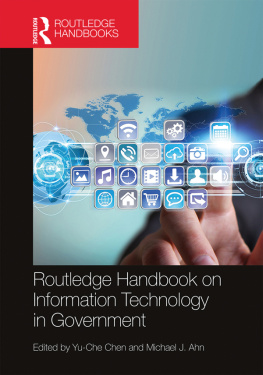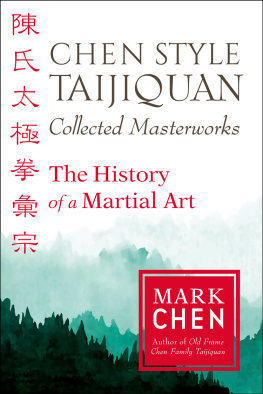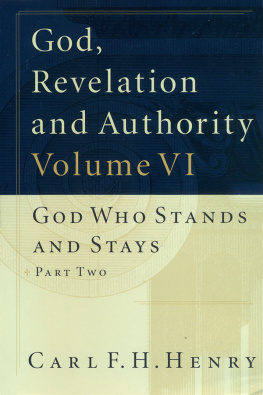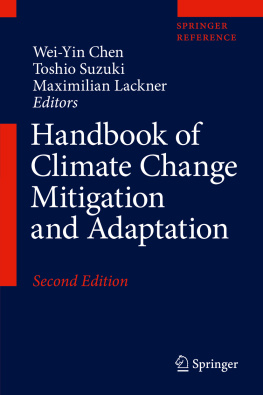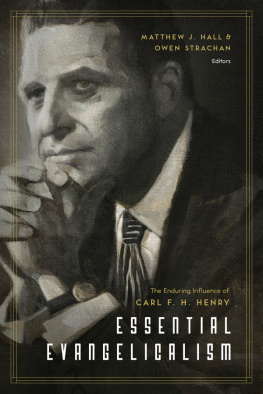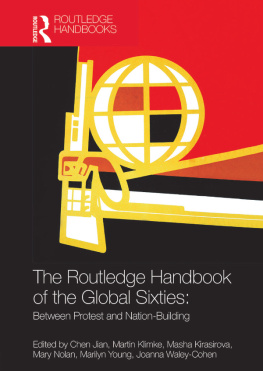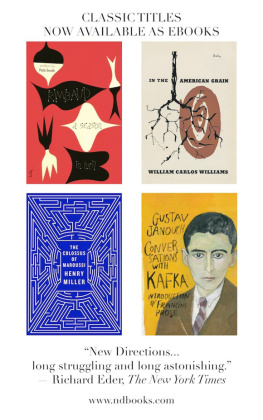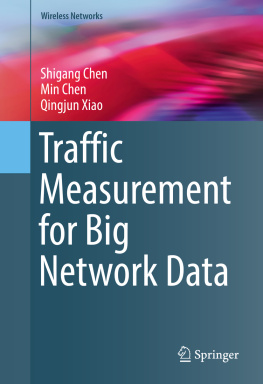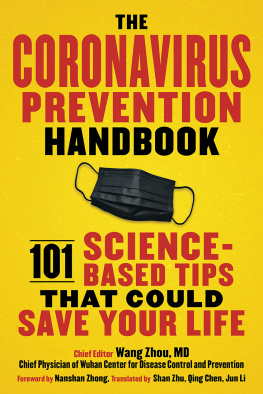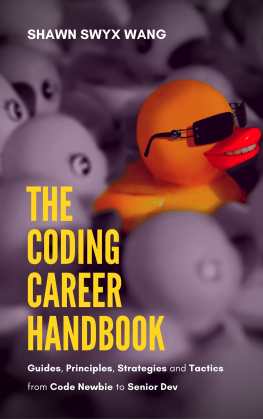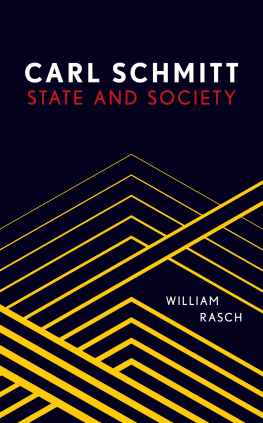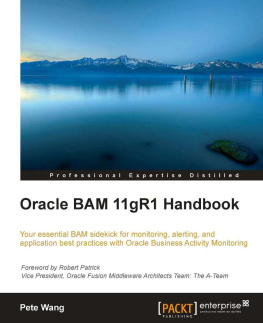Carl Shan Henry Wang William Chen - The Data Science Handbook
Here you can read online Carl Shan Henry Wang William Chen - The Data Science Handbook full text of the book (entire story) in english for free. Download pdf and epub, get meaning, cover and reviews about this ebook. year: 2015, publisher: leanpub.com, genre: Business. Description of the work, (preface) as well as reviews are available. Best literature library LitArk.com created for fans of good reading and offers a wide selection of genres:
Romance novel
Science fiction
Adventure
Detective
Science
History
Home and family
Prose
Art
Politics
Computer
Non-fiction
Religion
Business
Children
Humor
Choose a favorite category and find really read worthwhile books. Enjoy immersion in the world of imagination, feel the emotions of the characters or learn something new for yourself, make an fascinating discovery.

- Book:The Data Science Handbook
- Author:
- Publisher:leanpub.com
- Genre:
- Year:2015
- Rating:3 / 5
- Favourites:Add to favourites
- Your mark:
- 60
- 1
- 2
- 3
- 4
- 5
The Data Science Handbook: summary, description and annotation
We offer to read an annotation, description, summary or preface (depends on what the author of the book "The Data Science Handbook" wrote himself). If you haven't found the necessary information about the book — write in the comments, we will try to find it.
The Data Science Handbook — read online for free the complete book (whole text) full work
Below is the text of the book, divided by pages. System saving the place of the last page read, allows you to conveniently read the book "The Data Science Handbook" online for free, without having to search again every time where you left off. Put a bookmark, and you can go to the page where you finished reading at any time.
Font size:
Interval:
Bookmark:

Visit the website at: www.thedatasciencehandbook.com. No part of this book may be used or reproduced in any manner whatsoever without written permission except in the case of brief quotations in critical articles or reviews.
For more information, please contact contact@thedatasciencehandbook.com.
978-0-692-36799-5 (ISBN 13)
To our parents, siblings, friends and mentors. Your support and encouragement has been the fuel for our fire.
In the past five years, data science has made an impact in almost every major area of human endeavour. From commerce, to education, to energy, and of course, software and the Internet, data science has created immense value across the world. In fact, in early 2015 the President of the United States announced the new role of Chief Data Scientist to the White House and appointed DJ Patil, one of the interviewees in this book, to the position.
Like many innovations in the world, the birth of this industry was started by a few motivated people. Over the last few years, they founded, developed and advocated for the value that data analytics can bring to every industry. In The Data Science Handbook, you will have the opportunity to meet many of these founding data scientists, hear first hand accounts of the incredible journeys they took, and read where they believe the field is headed.
The road to becoming a data scientist is not always an easy one. When I tried to transition from experimental particle physics to industry, resources were few and far between. In fact, although a need for data science existed in companies, the job title had not even been created. I spent a lot of time teaching myself, working on various startup projects, and later saw many of my friends from academia run into the same challenges.
I observed a groundswell of incredibly gifted and highly trained researchers who were excited about moving into data-driven roles, yet were missing key pieces of knowledge about how to do so. As a result, they had trouble transferring their incredible quantitative and data analysis research skills to a career in industry. Meanwhile, having lived and worked in Silicon Valley, I also saw that there was very strong demand from technology companies who wanted to hire these exact people.
To help others bridge the gap between academia and industry, I founded the Insight Data Science Fellows Program in 2012. Insight is a training fellowship that helps quantitative PhDs transition from academia to industry. Over the last few years, weve helped hundreds of Insight Fellows, from fields like physics, computational biology, neuroscience, math, and engineering, transition from a background in academia to become leading data scientists at companies like Facebook, Airbnb, LinkedIn, The New York Times, Memorial Sloan Kettering Cancer Center and nearly a hundred other companies.In my personal journey to both entering the technology field as well as creating a community for others to do the same, one key resource I found to be tremendously useful was conversations with those who had successfully made the transition. As I developed Insight, I have had the chance to engage with some of Silicon Valleys best data scientists who are mentors to the program:
Jonathan Goldman created one of the first data products at LinkedInPeople You May Knowwhich transformed the growth trajectory of the company. DJ Patil built and grew the data science team at LinkedIn into a powerhouse and co-coined the term Data Scientist. Riley Newman worked on developing product analytics that was instrumental in Airbnbs growth. Jace Kohlmeier led the data team at Khan Academy that helped optimize learning for millions of students.
Unfortunately, its hard to get face-to-face time with these remarkable people. At Insight, to maintain an exceptionally high quality and personal time with these mentors, we select only a small group of talented scientists and engineers three times per year.
However, The Data Science Handbook provides readers with a way to have these in-depth conversation at scale.
By reading the interviews in The Data Science Handbook, you will have the experience of learning from the leaders in data science at your own pace, no matter where you are in the world. Each interview is an in-depth conversation, covering the personal stories of these data scientists from their initial experiences that helped them find their own path to a career in data science.
Its not just the early data science leaders who can have a big impact on the field. There is also new talent entering, with the opportunity for each and every new member to push the field forward. When I met the authors of this book, they were still college students and aspiring data scientists, full of the same questions that those beginning in data science have.
Through 18 months of hard work, they have done the legwork in seeking out some of the best data scientists around the country, and asking them for their advice and guidance. This book is the result of that work, containing over 100 hours of collected wisdom with people otherwise inaccessible to most of us (imagine having to compete with President Obama to talk with DJ Patil!).
By reading these extended, informal interviews, you will get to sit down with industry trailblazers like DJ Patil, Jonathan Goldman and Pete Skomoroch, who were all part of the early, core LinkedIn data science teams. You will meet with Hilary Mason and Drew Conway, who were instrumental in creating the thriving New York data science community. You will hear advice from the next generation of data science leaders, like Diane Wu and Chris Moody, both Insight Alumni, who are now blazing new trails at MetaMinds and Stitch Fix.
You will meet data scientists who are having a big impact in academia, including Bradley Voytek from UC San Diego and Joe Blitzstein from Harvard. You will meet data scientists in startups, such as Clare Corthell from Mattermark and Kunal Punera of Bento Labs, who will share how they use data science as a core competitive advantage.
The data scientists in the Data Science Handbook, along with dozens of others, have helped create the very industry that is now having such a tremendous impact on the world. Here in this book, they discuss the mindset that allowed them to create this industry, address misconceptions about the field, share stories of specific challenges and victories, and talk about what they look for when building their teams.
I hope that by reading their stories, hearing how they think, and learning their vision for the future of data science, you will come to think of ways you can have an impact, and perhaps even advance the field yourself.
Jake Klamka
Founder
Insight Data Science Fellows ProgramInsight Data Engineering Fellows Program
Insight Health Data Science Fellows Program
Welcome to The Data Science Handbook!
In the following pages, you will find in-depth interviews with 25 remarkable data scientists. They hail from a wide selection of backgrounds, disciplines, and industries. Some of them, like DJ Patil and Hilary Mason, were part of the trailblazing wave of data scientists who catapulted the field into national attention. Others are at the start of their careers, such as Clare Corthell, who made her own path to data science by creating the Open Source Data Science Masters, a self-guided curriculum built on freely available internet resources.
Font size:
Interval:
Bookmark:
Similar books «The Data Science Handbook»
Look at similar books to The Data Science Handbook. We have selected literature similar in name and meaning in the hope of providing readers with more options to find new, interesting, not yet read works.
Discussion, reviews of the book The Data Science Handbook and just readers' own opinions. Leave your comments, write what you think about the work, its meaning or the main characters. Specify what exactly you liked and what you didn't like, and why you think so.

